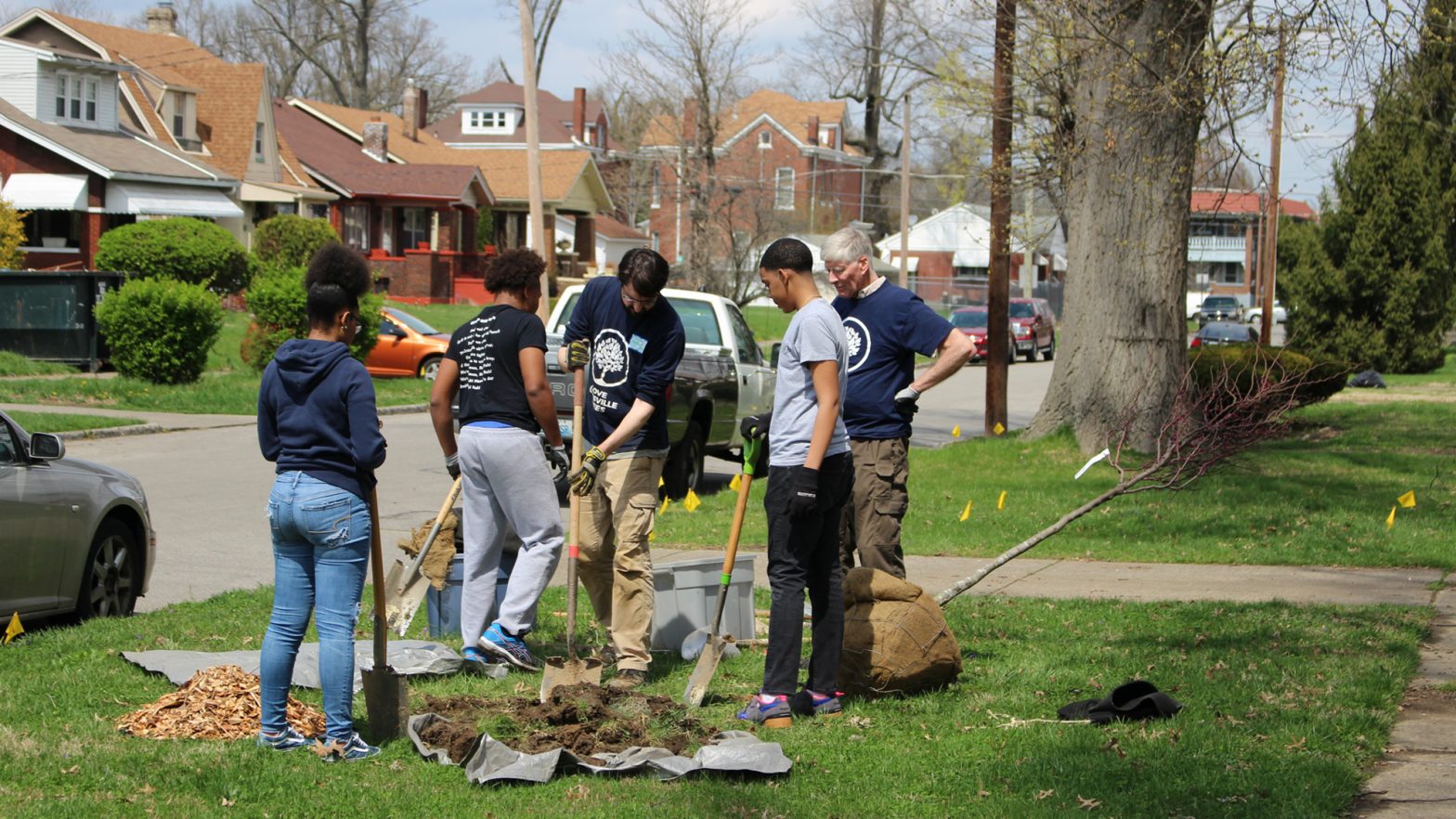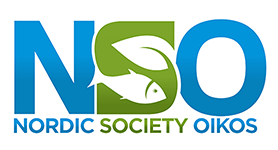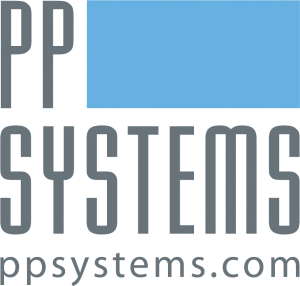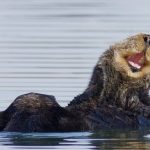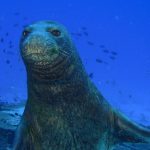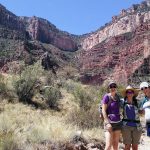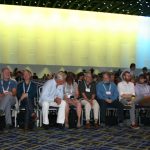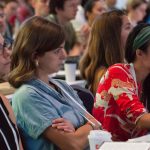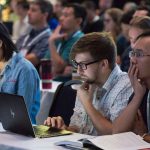About Special Sessions
Special sessions are 60-minute sessions that complement the formal scientific program, providing an opportunity for presentations or extended dialogue and exchanges beyond what is usually possible in the regular scientific sessions. These sessions are not appropriate for the presentation of formal research talks and do not include presentation abstracts. Special sessions do not conform to any single structure and innovative use of the session is encouraged. Special sessions are open to all registered ESA attendees without any advance signup required.
Special Session 1
Creating Effective Data Management Plans for Ecological Research
Monday, August 2nd, 2021
9:30 AM – 10:30 AM Pacific Time
Session Description:
Are you preparing a research proposal or initiating a research project? Increasingly, institutions as well as funders are requiring that proposals and research projects include a comprehensive plan that describes how the data will be effectively managed during the life of the project and beyond. Advance planning for data management is good practice; stewardship of earth depends on stewardship of the data about earth and life on it. This session introduces participants to the critical components of effective data management plans, with consideration of the ways in which your plan can be tailored to the size, duration, and breadth of your project. Participants will be introduced to the DMPTool, a tool that provides plan templates that can be adapted to meet individual needs, in addition to being guided through a series of examples that span the breadth of ecological research projects. Speakers will highlight an array of online resources that point to exemplary plans, best data practices for all phases of the data life cycle (e.g., data acquisition, quality assurance/quality control, data exploration, analysis, visualization, preservation, and sharing), and additional instructional materials and resources that will enable participants in developing their own data management plans. Designed to be interactive in nature, participants will have the opportunity to step through the data management planning process in real time.
Session Summary:
Are you preparing a research proposal or initiating a research project? Join us to discover current best practices for planning your research data management and tools to fulfill funder requirements for DMPs.
Organizer:
Amber Budden – University of California, Santa Barbara, NCEAS
Co-organizer:
William Michener – University of New Mexico
Special Session 2
Field Implementation of Microbial Inoculation: Concepts in Community Ecology and Challenges for Technology Development and Policy
Monday, August 2nd, 2021
9:30 AM -10:30 AM Pacific Time
Session Description:
Providing effective tools to inoculate systems with a microbiome that can reliably improve plant functioning is an essential and immediate need in agriculture. From improved nutrient uptake and stress tolerance to growth promotion and pathogen resistance, plant-associated microorganisms provide their hosts with the fitness advantages necessary to maintain function and resilience in the face of change. Studies have identified many microbial taxa that can aid plants’ ability to thrive under stress; however, successful inoculation of key microbes in a field setting is inconsistent. Individual microbial taxa and microbial consortia often cannot successfully compete or thrive once they are introduced to a native microbial community that is already adapted to the dynamic field environment.
This special session assembles experts across a diverse range of institutions to shed light on some of the challenges and potential resolutions to this very complex issue. We will highlight some of the progress made in understanding interactions among natural and introduced microbial communities, and emerging methods that may be used to improve applications of beneficial microorganisms in field settings. The session will include an introduction followed by short panelist presentations outlining current progress in addressing aspects of community functions, technology gaps, policy issues, and attempts to overcome the difficult nature of successfully implementing microbial inoculations in the field. We will then open the discussion to the audience and panel members to engage in a meaningful conversation of the many challenges impacting this emerging field.
Session Summary:
This session will bring together a panel of experts to discuss challenges, state of the art solutions, and policy gaps surrounding inoculating field systems with microbiomes that can successfully improve plant function.
Organizer:
Kelsey R. Carter – Los Alamos National Laboratory, Earth & Environmental Sciences Division
Co-organizers:
Louise H. Comas – USDA – Agricultural Research Service, Water Management Research Unit
Sanna Sevanto – Los Alamos National Laboratory, Earth & Environmental Sciences Division
L. Turin Dickman – Los Alamos National Laboratory, Earth & Environmental Sciences Division
Eric R. Moore – Los Alamos National Laboratory, Bioscience Division
Moderator:
Sangeeta Negi – Los Alamos National Laboratory, Bioscience Division
Speakers:
Posy E. Busby – Oregon State University, Department of Botany and Plant Pathology
Daniel Manter – USDA – Agricultural Research Service, Water Management Research Unit
Jennifer Jones – Michigan State University, Kellogg Biological Station
Yvonne Socolar – University of California – Berkeley, Environmental Science, Policy, and Management
Special Session 3
Looking Beyond Stockholm +50: The Role for Ecological Science
Monday, August 2nd, 2021
9:30 AM – 10:30 AM Pacific Time
Session Description:
The first UN Conference on the Human-Environment was held in Stockholm 1972 (often referred to as the Stockholm Conference) and alerted the world to the multiple ways human activities were damaging the environment on which society relies. The Stockholm Conference was a clarion call to national leaders and scientific communities to work together to find sustainable solutions to the growing threats to our environment.
This panel discussion among ecological leaders will explore the future advances in ecological research needed to meet Earth system and societal challenges that continue to threaten the sustainable future of our planet. The outcome of the Stockholm Conference was to set an ambitious agenda to guide nations in their dealings with a range of interrelated challenges including climate change, altered biogeochemical cycles, land fragmentation, eutrophication, and biodiversity losses that are limiting the capacity of Earth’s environmental systems to provide key ecosystem services essential to society. As we enter the third decade of the 21st century, these challenges have grown and have become threats to clean air, clean water, food security, health security, nature-based mitigation of climate change, and so much more. In this Special Session, a panel discussion will highlight the role of ecologists in framing and implementing the interdisciplinary approaches that are emerging to meet the challenges affecting the societal well-being and the Earth system.
This session will be followed by a companion session, SYMP 2: “Looking Beyond Stockholm +50: Moving toward Solutions: System Approaches to Sustaining Human-environment systems”.
Session Summary:
The first International Conference on the Human-Environment was held in 1972 and defined a set of interdisciplinary research needs. Ecological research has evolved to address these global environmental challenges. This session will highlight interdisciplinary approaches that are emerging to meet these challenges affecting the societal well-being and the Earth system.
Organizer:
Jerry M. Melillo – Marine Biological Laboratory, The Ecosystems Center
Co-organizer:
Dennis Ojima – Colorado State University, Ecosystem Science and Sustainability and the Natural Resource Ecology Laboratory
Moderator:
Jerry M. Melillo – Marine Biological Laboratory, The Ecosystems Center
Speakers:
Gretchen C. Daily – Stanford University, The Natural Capital Project
Patrick Keys – Colorado State University, School of Global Environmental Sustainability
James T. Randerson – University of California, Irvine, Department of Earth System Science
David S. Schimel – Jet Propulsion Laboratory, California Institute of Technology
Special Session 4
Maximize your 2021 Meeting Experience: Orientation and Networking for Student Attendees
Monday, August 2nd, 2021
9:30 AM – 10:30 AM Pacific Time
Session Description:
The ESA annual meeting can be simultaneously terrifying and exhilarating for student attendees, especially when you don’t know anyone or it’s your first hybrid conference. The objective of this special session is to welcome students and to provide them with the tools they need to ensure their ESA experience is positive and productive. We will begin with a short presentation that covers:
- ESA annual meeting schedule and structure
- Strategies for identifying sessions of interest
- Student Section opportunities and events focusing on students
- Effective and responsible uses of social media during the meeting
- Strategies for avoiding meeting burnout
As students, we attend the meeting to share our research, learn about new ideas, and rub elbows with many awesome ecologists. Critical to a productive meeting experience is networking with a wide range of people and forming relationships with other students from around the world. This is not a natural skill set for most people; the second half of this session will focus on networking with fellow students to build relationships and foster future collaboration. We will provide some brief tips on how to start and maintain conversations with time for student networking. This session targets first time attendees, but advice and discussion/networking opportunities are relevant to students at all levels as well as recent graduates in attendance.
Session Summary:
This session aims to help all students maximize their ESA Annual Meeting experience and to ensure students leave ESA 2021 with a few new friends and feeling exhilarated and excited about ecology.
Organizer:
Callie Oldfield – University of Georgia
Special Session 5
Vital Connections Tribal Culture & Ecology
Monday, August 2nd, 2021
9:30 AM – 10:30 AM Pacific Time
Session Description:
This special session hosted by the Traditional Ecological Knowledge section provides a regional perspective of communities and ecosystems inviting indigenous/tribal peoples as historically underrepresented groups to address the ESA annual conference theme of: “Vital Connections.” Tribal representative from the region, will share their cultural history, uses of local ecosystems, habitats, and resources. Examples will be provided of the challenges and opportunities that face indigenous communities of Southern California, United States. Perspectives of Indigenous people, based upon traditional ecological knowledge (TEK) frame socio-ecological connections, address widespread ecosystem change, and guidance for working with indigenous and tribal peoples engaging in interdisciplinary ecological research and management collaborations.
Session Summary:
This special session, hosted by the TEK section provides a regional perspective of communities and ecosystems inviting indigenous/tribal peoples as historically underrepresented groups to address the ESA annual conference theme: “Vital Connections.” Tribal representatives from the region, will share their cultural history, uses of ecosystems, habitats and resources.
Organizer:
Frank K. Lake – U.S. Forest Service, Pacific Southwest Research Station
Co-organizer:
James Rattling Leaf – University of Colorado – Boulder, North Central Climate Adaptation Science Center
Special Session 6
Careers in Science Policy
Tuesday, August 3rd, 2021
9:30 AM – 10:30 AM Pacific Time
Session Description:
Major issues facing society that are rooted in science and technology are numerous: climate change, gene editing, nuclear power, sustainable agriculture, public health policy, and many more. As a result, scientists have an important role in helping government decision makers formulate policy that is consistent with broader societal values and priorities but is also scientifically sound. The panelists in this session will represent a variety of experiences interacting with Federal policy makers including serving as Congressional staffers, working at advocacy organizations, embedding in executive branch agencies, and providing non-partisan analysis of science policy.
This session will be an opportunity for participants considering a career in science policy to learn about effective strategies to make the transition from working in academic settings. Panelists will also discuss the skills scientists bring to the policy arena beyond technical expertise. Opportunities for people at all career stages, from students who will soon finish degrees to mid- and late-career researchers, will be addressed.
Session Summary:
This session will feature a panel of ecologists with a variety of experiences in the arena of Federal science policy. It will focus on advice for individuals who may be interested in pursuing a career in science policy.
Organizer:
Thomas D. Olszewski – Science and Technology Policy Institute
Co-organizers:
Xueying “Shirley” Han – Institute for Defense Analyses, Science and Technology Policy Institute
Gifford Wong – Science and Technology Policy Institute
Special Session 7
Effective Use of Models to Improve Field Management of Biological Invasions: Progress and Future Needs
Tuesday, August 3rd, 2021
9:30 AM – 10:30 AM Pacific Time
Session Description:
Biological invasion management is a costly endeavor, with new areas constantly being invaded and new invaders perpetually appearing. Resources for management are limited, thus managers need to be efficient in how they use what they have, especially when managing large areas or extensive invasions. A large body of mathematical models of biological invasion have been developed to help determine optimal strategies to achieve the maximum return from management investment. Unfortunately, we still do not have adequate knowledge to generalize the optimal strategies in the field because little empirical work has been done to validate existing conclusions from the modeling work.
This special session brings a diverse panel of theoretical ecologists and field invasion biologists and managers to address the critical gaps between invasion management and modeling work. During this session we will initiate a broader dialogue with attendees to discuss how a variety of developed models can be used to inform on-the-ground management, identify major challenges that inhibit field application of modeling findings, and propose potential solutions to these challenges. These solutions are expected to facilitate communication between modelers and land managers, contributing to more efficient incorporation of relevant modeling results into management activities. This session aims to create a culture and common language in which long-term interactions and interdisciplinary teams between managers and modelers can be built, as increased collaboration and communication between these groups will ultimately improve our ability to manage invasive species.
Session Summary:
By investigating field management strategies with a diverse array of modelling approaches, the speakers in this session will seek to identify the successes, challenge, and ways forward in invasion control research.
Organizer:
Bo Zhang – Oklahoma State University
Co-organizers:
Alan Hastings – University of California, Davis, Dept. of Environmental Science and Policy
Kim Cuddington – University of Waterloo, Department of Biology
Speakers:
Alan Hastings – University of California, Davis, Dept. of Environmental Science and Policy
Cang Hui – Stellenbosch University
Andrew Liebold – US Forest Service Northern Research Station
Rebecca Epanchin-Niell – Resources for the Future
Julie Lockwood – Rutgers University, Department of Ecology, Evolution, and Natural Resources
Special Session 8
First Steps to Introduce Diversity, Equity and Inclusion Efforts in Your Lab, Department and Beyond
Tuesday, August 3rd, 2021
9:30 AM – 10:30 AM Pacific Time
Session Description:
Research supports that a diversity of perspectives working towards scientific goals leads to deeper critical thinking and more productive outcomes. Thus, cultivating equitable and inclusive spaces within all levels of interaction that supports and uplifts every member in our scientific communities is critical. In this session, we will provide resources and insight into our experiences with first steps you can take as a faculty member or graduate student to increase diversity, equity and inclusion (DEI) efforts at your institution. First, we will discuss the importance of multi-level action in inciting change. Next, we will cover specific actions you can take at the lab- and department-level to support DEI efforts and conversations. Lastly, we will lead small group activities after each action covered to facilitate discussion on how participants can implement this work at their home institutions. These discussions will allow us to brainstorm mechanisms for ensuring that accountability towards our DEI goals is developed and maintained, and discuss actions we can take to overcome potential barriers to our efforts. The overall purpose of this session is to aid in the development of concrete goals and accompanying action items aimed at increasing equity and inclusion in the participants’ home institutions. Each participant will leave this session with at least one DEI action item that they can initiate at their institution, and connections to other ecologists working towards similar goals. Everyone benefits from diversity, so let’s do the work to ensure that all members of our communities are supported, respected and valued.
Session Summary:
In this session, we will discuss first steps that ecologists can take at the lab- and department-level to instigate equity and inclusion initiatives at their home institutions. We will provide perspectives from graduate students and faculty in a panel-style discussion and lead small group activities to develop DEI action plans.
Organizer:
Laura J. Jones – Pennsylvania State University, Department of Entomology, Intercollege Graduate Degree Program in Ecology
Co-organizers:
Margarita López-Uribe – Pennsylvania State University, Department of Entomology, Intercollege Graduate Degree Program in Ecology
Suzanne Fleishman – The Pennsylvania State University, Plant Science , Ecosystem Science and Management
Caylon F. Yates – The Pennsylvania State University, Department of Plant Pathology and Environmental Microbiology, Intercollege Graduate Degree Program in Ecology
Kristen K. Brochu – Pennsylvania State University, Department of Entomology; University of Toronto, Department of Biological Sciences
Special Session 9
How NASA’s Surface Biology and Geology Mission Will Support the Next Generation of Global Ecosystem and Biodiversity Science
Tuesday, August 3rd, 2021
9:30 AM – 10:30 AM Pacific Time
Session Description:
This session will present the latest developments and current plans for the NASA Surface Biology and Geology (SBG) Designated Observable, a combined imaging spectroscopy (IS) and thermal infrared (TIR) mission for ecosystem and biodiversity science. Key SBG personnel and scientists will provide a general overview of the mission, as well as detailed discussions of mission design, core research foci, pathfinder activities, and other ongoing pre-deployment research that is helping to guide mission requirements. Select, 5-minute “lightning” presentations will also highlight key areas in which SBG is expected to contribute to the improved measurement and modeling of global ecosystems as well as biodiversity monitoring. There will also be time for open Question and Answer (Q&A) period with the community. This session will be of interest to researchers from around the world in the Earth science, aquatic, and terrestrial ecological communities who are interested in linking their research to remotely sensed information. Attendees can also expect to learn more about the proposed mission concept, the next major mission review steps and current mission schedule.
Session Summary:
This session will discuss the planned NASA Surface Biology and Geology (SBG) Designated Observable satellite mission, which will revolutionize spaceborne ecosystem and biodiversity science though combined global imaging spectroscopy and thermal infrared imagery.
Organizer:
Shawn P. Serbin – Brookhaven National Laboratory, Environmental and Climate Sciences Department
Co-organizers:
Kyla Dahlin – Michigan State University, Geography, Environment, & Spatial Sciences
Benjamin Poulter – NASA Goddard Space Flight Center, Biospheric Sciences Laboratory
Alexey Shiklomanov – NASA Goddard Space Flight Center
Michelle Gierach – Jet Propulsion Laboratory, California Institute of Technology
Kevin Turpie – University of Maryland Baltimore County, Joint Center for Earth Systems Technology
Liane Guild – NASA Ames Research Center
Kerry Cawse-Nicholson – Jet Propulsion Laboratory, California Institute of Technology, Climate Sciences
David R. Thompson – Jet Propulsion Laboratory, California Institute of Technology
Ryan P. Pavlick – Jet Propulsion Laboratory, California Institute of Technology
Speakers:
David S. Schimel – Jet Propulsion Laboratory, California Institute of Technology
Kerry Cawse-Nicholson – Jet Propulsion Laboratory, California Institute of Technology, Climate Sciences
Benjamin Poulter – NASA Goddard Space Flight Center, Biospheric Sciences Laboratory
Liane Guild – NASA Ames Research Center
Alexey Shiklomanov – NASA Goddard Space Flight Center
Kyla Dahlin – Michigan State University, Geography, Environment, & Spatial Sciences
Shawn P. Serbin – Brookhaven National Laboratory, Environmental and Climate Sciences Department
Special Session 10
The Role of Urban Biodiversity in Ecosystem Services for Sustainable Cities
Tuesday, August 3rd, 2021
9:30 AM -10:30 AM Pacific Time
Session Description:
This special session is focused on understanding the factors influencing connections between plants and animals in cities and the effect on ecosystem services such a pollination and pest suppression in urban landscapes. Green urban areas, either at street level (parks and trees) or in buildings (green walls, green roofs, balconies, and courtyards) have been recognized as key habitats that contribute to the conservation of urban biodiversity and ecosystem services such as microclimate regulation, reduction in pollution and a recreational environment for citizens, adding social and cultural benefits. City planners use a combination of non-native trees and native trees to reforest cities under aesthetical, ecological, or socioeconomic criteria. However, the introduction of non-native trees within the cities changes the interactions between species (plants-plants & plants-animals) and their ecological function. In this session, we will share research about the effect of green urban management on birds, insects, and plants diversity and their biotic interactions in Bogotá city. These types of studies are important to understand biodiversity and ecosystem services within cities and to be able of implementing sustainability in an age of global urbanization.
Session Summary:
This special session is focused on understanding the factors influencing connections between plants and animals in urban landscapes and the effect on ecosystem services such a pollination and biological control: study cases in Bogota city, Colombia.
Organizer:
Paola Olaya Arenas – Institute Alexander von Humboldt, Sustainability
Co-organizer:
Juliana Durán – Jardín Botánico de Bogotá, Science Department
Speakers:
Mónica Novoa Salamanca – Jardín Botánico de Bogotá, Science Department
Andrés Fernando Pereira – Jardín Botánico de Bogotá, Science Department
Juliana Durán – Jardín Botánico de Bogotá, Science Department
Kristian David Rubiano – Jardín Botánico de Bogotá, Science Department
Special Session 11
Decadal Strategic Planning and Implementation: U.S. Carbon Cycle Science Program and the North American Carbon Program
Wednesday, August 4th, 2021
9:30 AM – 10:30 AM Pacific Time
Session Description:
The U.S. Carbon Cycle Science Program (US CCSP) is a federal multi-agency research program established under US Global Change Research Program (USGCRP) auspices in 1999. It incorporates broad coordinated community input such as from the U.S. Carbon Cycle Science Plans (1999, 2011). Researchers and program managers have been using the 2011 Plan to expand and enhance our understanding of the carbon and pertinent biogeochemical cycles across land, water, air and society from local to regional to global scales. Once such program, the North American Carbon Program (NACP) is a multi-agency, multidisciplinary community of practice focused on understanding carbon sources and sinks in North American and adjacent oceans. As a core program of the US CCSP, NACP has recently developed a Science Implementation Plan to inform research, scientific collaboration, and syntheses across 5 program elements: sustained and expanded observations; assessment and integration; processes and attribution; prediction; and communication, coordination, and decision support. In this open forum, we will discuss and seek community input on research progress since 2011, the new NACP Science Implementation Plan, and the broader decadal strategic planning vision of the US CCSP. Pertinent U.S. research funding programs, observation networks and coordination capabilities and opportunities across agencies and internationally will also be discussed.
US Carbon Cycle Science Program
Session Summary:
An opportunity to learn about progress and future plans for the US Carbon Cycle Science Program (US CCSP) and the North American Carbon Program (NACP). The new NACP Science Implementation Plan will be highlighted.
Organizer:
Elisabeth Larson – NASA GSFC/SSAI, Code 618
Co-organizer:
Gyami Shrestha – Carbon Cycle Interagency Working Group (CCIWG), US Carbon Cycle Science Program Office/UCAR
Special Session 12
Enhancing Urban Ecosystems in Los Angeles: How Research Can Inform Plans, Policies and Projects that Address Green Infrastructure in Cities
Wednesday, August 4th, 2021
9:30 AM – 10:30 AM Pacific Time
Session Description:
Urban areas play an essential role in advancing conservation goals. As a megacity located in one of 36 Global Biodiversity Hotspots, Los Angeles (L.A.) is uniquely positioned to have a significant impact on the health and resilience of ecosystems and biodiversity. Conservation research and practice in an urban context like L.A. must consider not only ecological systems, but also the socio-political, cultural, and economic systems that are inextricably linked to the environment. Enlisting the help and support of people in achieving conservation goals in urban areas is essential. “The aim is to create a virtuous cycle that will be the engine for continued accrual of the benefits to both people and nature, by mainstreaming conservation so it becomes a part of and product of business as usual” (Morrison, 2016).
This session will present the Virtuous Cycle framework (Morrison, 2016) and showcase examples focused on green infrastructure in the urban core of L.A. that illustrate the power of creating regenerative cycles. The session will highlight the importance of public-private partnerships and how local government, researchers and nonprofits can coordinate efforts to move from status quo to a desired future state. Presenters will address what types of stakeholders should be involved, how to manage complex collaborations, and demonstrate how to create socio-ecological systems and catalyze connections. As the virtuous cycle can be applied at various scales, local to global, attendees will learn how to incorporate the framework into their day-to-day work and broaden collaborations to achieve urban conservation goals.
Session Summary:
This session will present the Virtuous Cycle framework (Morrison, 2016) and highlight the power of creating regenerative cycles to move from status quo to a desired future state. Presenters will focus on green infrastructure in Los Angeles, and how government, researchers and nonprofits can collaborate to achieve urban conservation goals.
Organizer:
Kat Superfisky – City of Los Angeles
Co-organizers:
Sophie S. Parker – The Nature Conservancy
Michelle Barton – City of Los Angeles, LA Sanitation and Environment
Speakers:
Sophie S. Parker – The Nature Conservancy
Michelle Barton – City of Los Angeles, LA Sanitation and Environment
Michele Romolini – Loyola Marymount University, Center for Urban Resilience
Edith de Guzman – Los Angeles Urban Cooling Collaborative; University of California, Los Angeles
Eric Wood – Natural History Museum of Los Angeles County, California State University Los Angeles
Gregory Pauly – Natural History Museum of Los Angeles County, Herpetology
Kat Superfisky – City of Los Angeles
Special Session 13 – CANCELLED
Envisioning the Future of SEEDS
Wednesday, August 4th, 2021
9:30 AM – 10:30 AM Pacific Time
Session Description:
The ESA SEEDS Program has been extremely successful and is celebrating 25 years of existence in 2021. To continue to have success we must find ways to innovate and improve the program going forward. Envisioning the Future of SEEDS is an initiative that will be developed at the Virtual SEEDS Chapter Regional Meetings in the Spring of 2021 that will allow us to brainstorm ideas and strategies to better serve the SEEDS Chapters and community. It will serve to motivate, engage, and boost chapter moral by allowing chapters to give input on different topics that SEEDS could improve upon. One topic will be covered per each regional meeting to give ample time to develop each topic and idea. All topics will allow us to better serve our Chapter Network, but they will also benefit each chapter directly by creating content that they can implement immediately.
Session Summary:
Envisioning the Future of SEEDS is an initiative that was developed at the Virtual SEEDS Chapter Regional Meetings in the Spring of 2021 that allowed us to brainstorm ideas and strategies to better serve the SEEDS Chapters and community for the next 25 years.
Organizer:
Esbeiry Cordova-Ortiz – Ecological Society of America, Education and Diversity Department
Co-organizers:
Teresa Mourad – Ecological Society of America, Education & Diversity Programs
Frederick Abbott – Ecological Society of America
Special Session 14
Success Stories from the Front Lines of Policy and Science
Wednesday, August 4th, 2021
9:30 AM – 10:30 AM Pacific Time
Session Description:
Science policy can often feel like an uphill battle, yet each day science advocates across the country are forging informed public policy for the benefit of all. Hear stories from the trenches by senior scientists at Union of Concerned Scientists, USAID, the Nature Conservancy, and the National Academies. From climate change to land governance, these researchers have turned their scientific expertise to informing policy and connected their policymakers, communities, and constituents with key research and findings. Whether you are a veteran of politics or an ecologist wondering how your work can make a difference, join us for inspiring stories in science policy.
Session Summary:
Join us for inspiring stories from the trenches by senior scientists at Union of Concerned Scientists, USAID, Nature Conservancy, and the National Academies. From climate change to land governance, these researchers have turned their scientific expertise to informing policy and connected their policymakers, communities, and constituents with key scientific research.
Organizer:
Charlotte Levy – University of Massachusetts, School of the Environment
Co-organizers:
Emily Graves – University of California, Davis, Environmental Science & Policy
Theresa Burnham – San Diego State University
Caroline E. Ridley – US EPA, Center for Public Health and Environmental Assessment
Sarah M Anderson – USDA Forest Service
Speakers:
Astrid Caldas – Union of Concerned Scientists
Alexis C. Erwin – USAID/Africa Bureau, Office of Sustainable Development
April M. Melvin – University of Florida, Department of Biology
Susan C. Cook-Patton – The Nature Conservancy, Global Lands
Special Session 15
Connecting Disease with Movement Ecology in Humans and Animals: An Integrated Approach?
Thursday, August 5th, 2021
9:30 AM – 10:30 AM Pacific Time
Session Description:
Individual movements and population connectivity determine the spatiotemporal dispersal of human and animal pathogens and the spillover of wildlife pathogens to humans or domestic animals. Use of animal movement ecology and human mobility science to understand linkages between disease processes and movement have advanced largely in parallel. However, human activity has all but removed the spatial and temporal barriers that historically separated places, populations, and species. The human footprint is also changing animal movements globally on scales from foraging movements to migrations. An interdisciplinary approach is critically needed to understand the vital connection between host movement and disease processes, and how to integrate human-wildlife approaches to these questions in a rapidly changing world.
This dynamic session will use discussion-based exchange to explore how movement is integrated into studies of infectious disease spillover and transmission in humans and wildlife. Speakers will use 3-5 minute talks (30 minutes) to introduce overarching questions or key ideas followed by structured group discussion (30 minutes). We will compare fundamental differences in human and wildlife study of host movement and the potential benefits of an integrated human-wildlife approach, exploring topics like the importance of spatial scale, different data streams, and the causes and consequences of altered host movement patterns. Following the session, organizers will engage interested participants in a peer-reviewed synthesis of the session topics. Such a paper will help bridge a gap between human and wildlife researchers, improving the way we study host movement and infectious disease introduction, dispersal, and maintenance in all populations.
Session Summary:
This session will explore host movement in studies of disease transmission and spillover from human and wildlife perspectives. Speakers will introduce key ideas, followed by discussion to identify interdisciplinary approaches and opportunities for collaboration. Come prepared with a movement/disease question for a fellow participant or speaker!
Organizer:
Maureen Kessler – Montana State University, Ecology
Co-organizers:
Kezia Manlove – Utah State University, Department of Wildland Resources and Ecology Center
Raina K. Plowright – Montana State University, Microbiology and Immunology
Troy Koser – Montana State University, Microbiology and Immunology
Moderator:
Raina K. Plowright – Montana State University, Microbiology and Immunology
Speakers:
Sonia Altizer – University of Georgia, Center for the Ecology of Infectious Diseases
Andrew J Tatum – University of Southampton
Caroline Buckee – Harvard School of Public Health, Department of Epidemiology
Daniel G. Streicker – MRC–University of Glasgow Centre for Virus Research
Lauren A. White – National Socio-Environmental Synthesis Center
Steven T. Stoddard – University of California, Department of Entomology and Nematology
Emily Gurley – Johns Hopkins Bloomberg School of Public Health, Department of Epidemiology
Paul C. Cross – US Geological Survey, Northern Rocky Mountain Science Center
Meggan Craft – University of Minnesota, Veterinary Population Medicine
Kezia R. Manlove – Utah State University, Department of Wildland Resources
Richard J. Hall – University of Georgia, Department of Infectious Diseases, College of Veterinary Medicine
Special Session 16
From Undergrad to Grad to Early Career Professional: Career Tips for Students
Thursday, August 5th, 2021
9:30 AM – 10:30 AM Pacific Time
Session Description:
The field of ecology professionals is diverse, and this session explores the many paths that lead to a career in ecology. This session will feature panelists spanning different career stages, from undergraduate, graduate, post-doctorate, and professional, as they tell their stories of how they navigated their career path in ecology research and alt-academic careers. This session is geared towards students that are interested in learning about the skills and strategies needed to succeed as a career professional. If you are a student interested in a career in ecology, join us and our panel to discuss what you need to know before you start your next step!
Session Summary:
This session is geared towards students that are interested in learning about the skills and strategies needed to succeed as a career professional.
Organizer:
Ajisha Alwin – University of Florida
Co-organizer:
Callie Oldfield – University of Georgia
Special Session 17
Microbiomes and Social Equity
Thursday, August 5th, 2021
9:30 AM – 10:30 AM Pacific Time
Session Description:
Microbiomes are increasingly seen as critical physiological, developmental and ecological mediators within and among organisms, and between the latter and our abiotic environments. Therefore, it is no surprise that microbial communities may be altered, depleted or disrupted by social and economic determinants. Factors accruing to socioeconomic inequality produce specific alterations and differentiation of microbial communities — by way of such factors as nutritional access, environmental pollutants or green space availability — often to the detriment of human and ecosystem health. This special session will be organized as a panel discussion with break-out groups in order to provide participants the opportunity to discuss the ways in which social inequity interacts with microbiomes, and how we might intervene as scientists and communities to protect and restore favorable microbiomes while advancing social equality. We hope to generate research questions and actionable policy items. This session is cosponsored by the Microbes and Social Equity Working Group and the Microbial Ecology Section of ESA.
Session Summary:
This special session will provide an opportunity for participants to explore some of the ways in which microbiomes interact with our social environments often producing adverse health and ecological outcomes, and how we might promote healthful interactions.
Organizer:
Michael Friedman – AICASA
Co-organizers:
Justin Stewart – Vrije Universitet Amsterdam, Department of Ecological Sciences
Naupaka Zimmerman – University of San Francisco, Biology
Suzanne L. Ishaq – Montana State University, Land Resources and Environmental Sciences
Speakers:
Monica Trujillo – Queens County Community College
Naupaka Zimmerman – University of San Francisco, Biology
Justin Stewart – Villanova University, Biological Sciences
Suzanne L. Ishaq – Montana State University, Land Resources and Environmental Sciences
Ariangela Kozik – University of Michigan; Black Microbiologists Association
Special Session 18
Urban Lakes as Focal Points for Community Science and Ecological Restoration
Thursday, August 5th, 2021
9:30 AM – 10:30 AM Pacific Time
Session Description:
Urban lakes often serve as oases for inner-city communities. These water bodies offer passive and active recreational opportunities and provide a wide array of beneficial ecological and societal functions. In many cases, the communities served by these lakes are underserved, with a long history of environmental-justice-related issues.
While viewed by the community as recreational water bodies, many urban lakes were originally constructed to provide services that directly conflict with recreational use, such as flood control, stormwater management, and even domestic and industrial wastewater management. In addition to negatively affecting users’ health, these activities lead to water quality degradation, environmental perturbations, and trophic state changes. Urban lakes are frequently located in areas where communities lack resources to mitigate impairments, and public sector funding is often unavailable due to the perception of these water bodies as second tier. Consequently, impairments persist and the user community’s expectations and needs fail to be met.
Another benefit provided by urban lakes is their potential to introduce youth and adults to science and engineering. These lakes can become focal points for science, technology, engineering, art, and mathematics (STEAM) programs suitable for grammar and secondary school students as well as a means of bringing the community together via citizen-science programs and hands-on restoration projects.
This Special Session will bring together scientists, educators, and community leaders to explore urban lakes as focal points for community science and action. Panelists will explore challenges of restoring urban lakes and highlight community-based success stories.
Session Summary:
Urban lakes often serve as oases, yet their ecological integrity is frequently threatened by their use in stormwater and wastewater management. With limited funding available for restoration, impairments persist. This Special Session brings together scientists and community leaders to explore urban lakes as focal points for community science and action.
Organizer:
E. Perry Thomas – Kentucky Division of Water
Co-organizers:
Lisa Borre – Cary Institute of Ecosystem Studies; North American Lake Management Society
Stephen Souza – Clean Waters Consulting, LLC
Mark Rosenkranz – Lake Oswego Corporation
Moderator:
E. Perry Thomas – Kentucky Division of Water
Speakers:
Laura Costadone – Portland State University, Environmental Science and Management
Vinicius Taguchi – University of Minnesota, St. Anthony Falls Laboratory
Meishka Mitchell – Cooper’s Ferry Partnership
Special Session 19
Vital Connections for Women and Non-Binary BIPOC in Ecology
Thursday, August 5th, 2021
9:30 AM – 10:30 AM Pacific Time
Session Description:
This session aims to highlight and grow a supportive affinity and mentoring network for women and non-binary Black, Indigenous, and People of Color (BIPOC) in ecology and evolutionary biology (EEB). Identity affinity groups can provide a vital professional service by uniting ecologists around a common culture, cause or interest. They can also help identify mentors, essential components to professional success. However, BIPOC in EEB struggle to find mentors that can provide culturally-specific advice and support regarding the intersectional experiences of women or non-binary BIPOC in EEB. This is because Ecology, as all other STEM disciplines, is a white-dominated space, with few BIPOC ecologists. This is unfortunate because one of the main barriers for retention of BIPOC scientists in academia, and other higher-education careers, is the absence of overall support -mentors included. These scholars experience unique barriers, which originate, fundamentally, from feelings of loneliness, emotional fatigue as a result of constant microaggressions and other implicit bias, and need of a community, which can be difficult to find in privilege-dominated spaces.
As such, in this session we will focus on how to create group mentoring networks and expand the existing WoCinEEB Slack community which aims to support BIPOC efforts to organize and discuss issues surrounding gender and race in a safe space. We aim to create a space for sharing and providing career advice and resources through the lens of intersectionality with the purpose of building a long-term supportive community of women and non-binary BIPOC in EEB across career stages.
Session Summary:
This session will expand the existing network WoCinEEB (women of color and non-binary people of color in ecology and evolutionary biology) by creating a vital connection: a group mentoring initiative with the overall goal of recruiting, retaining, and supporting women and non-binary people of color in Ecology.
Organizer:
Adriana Romero-Olivares – New Mexico State University, Biology
Co-organizer:
Bala Chaudhary – DePaul University, Department of Environmental Science and Studies
Ariane Peralta – East Carolina University, Department of Biology
Lily Khadempour – Rutgers University-Newark
